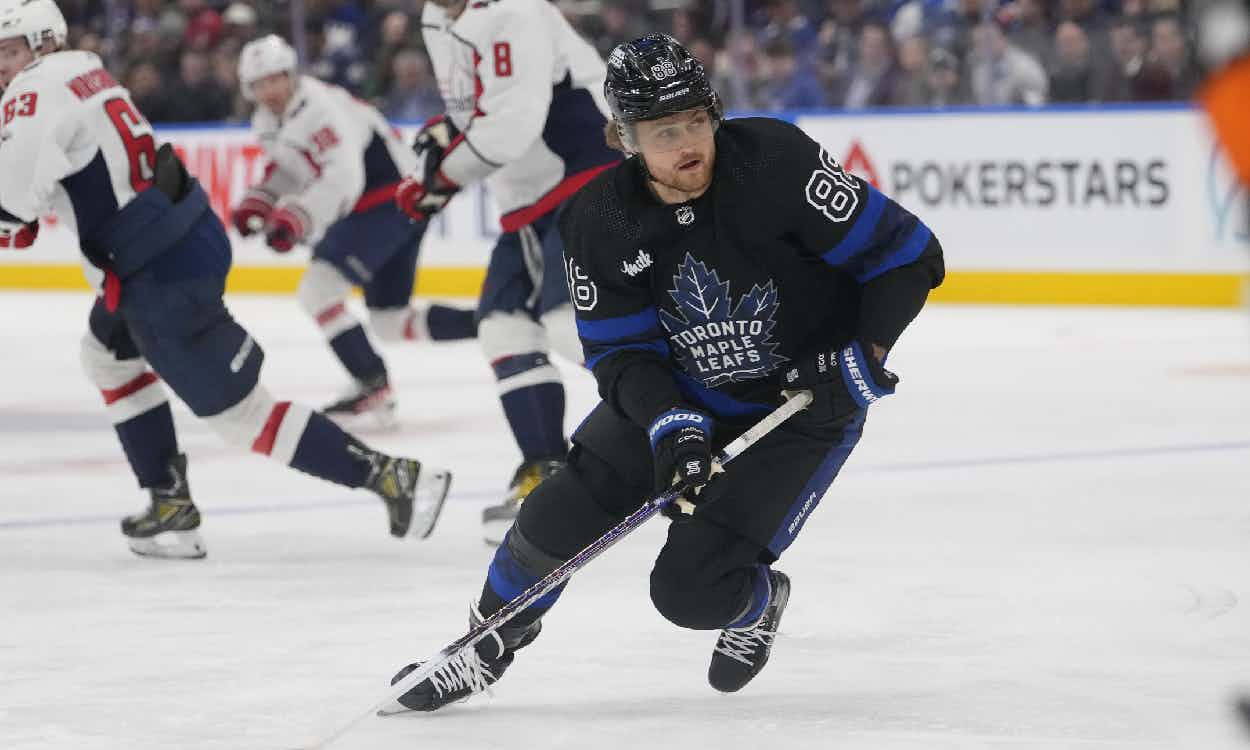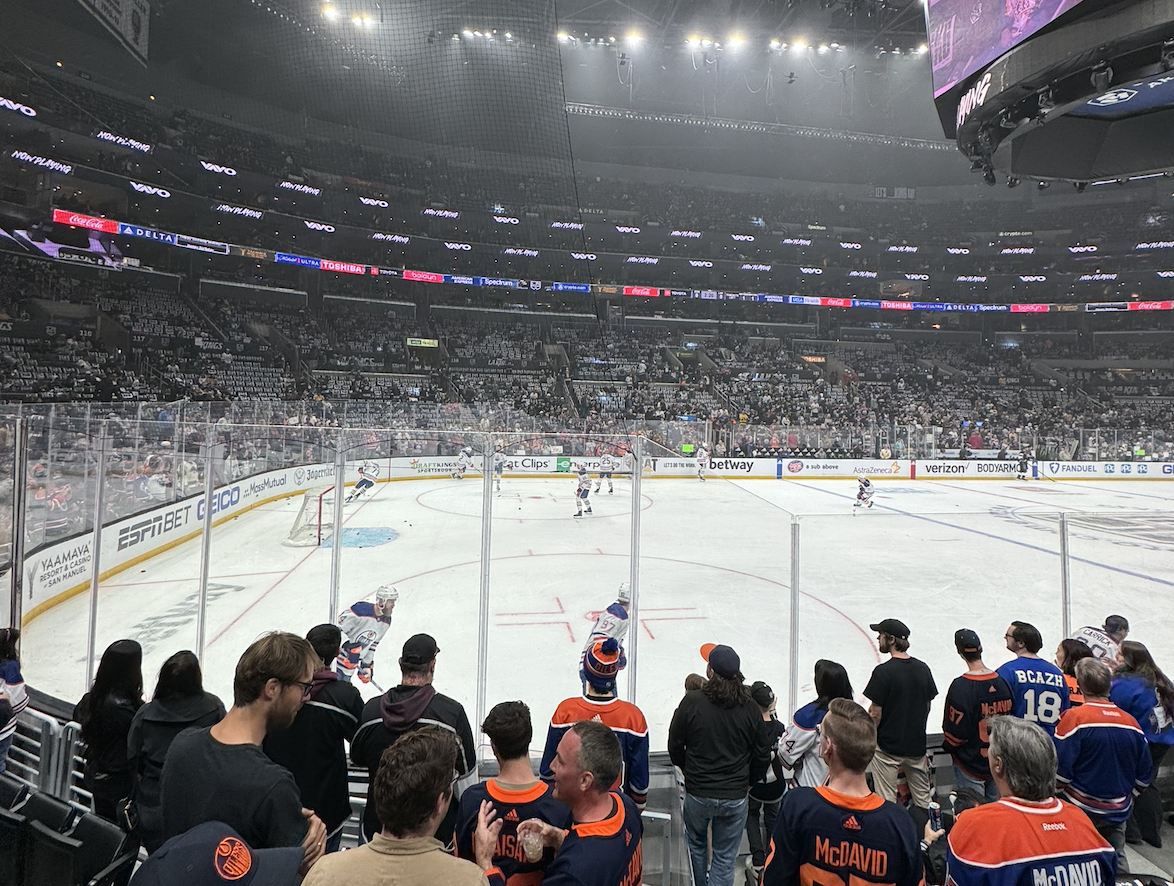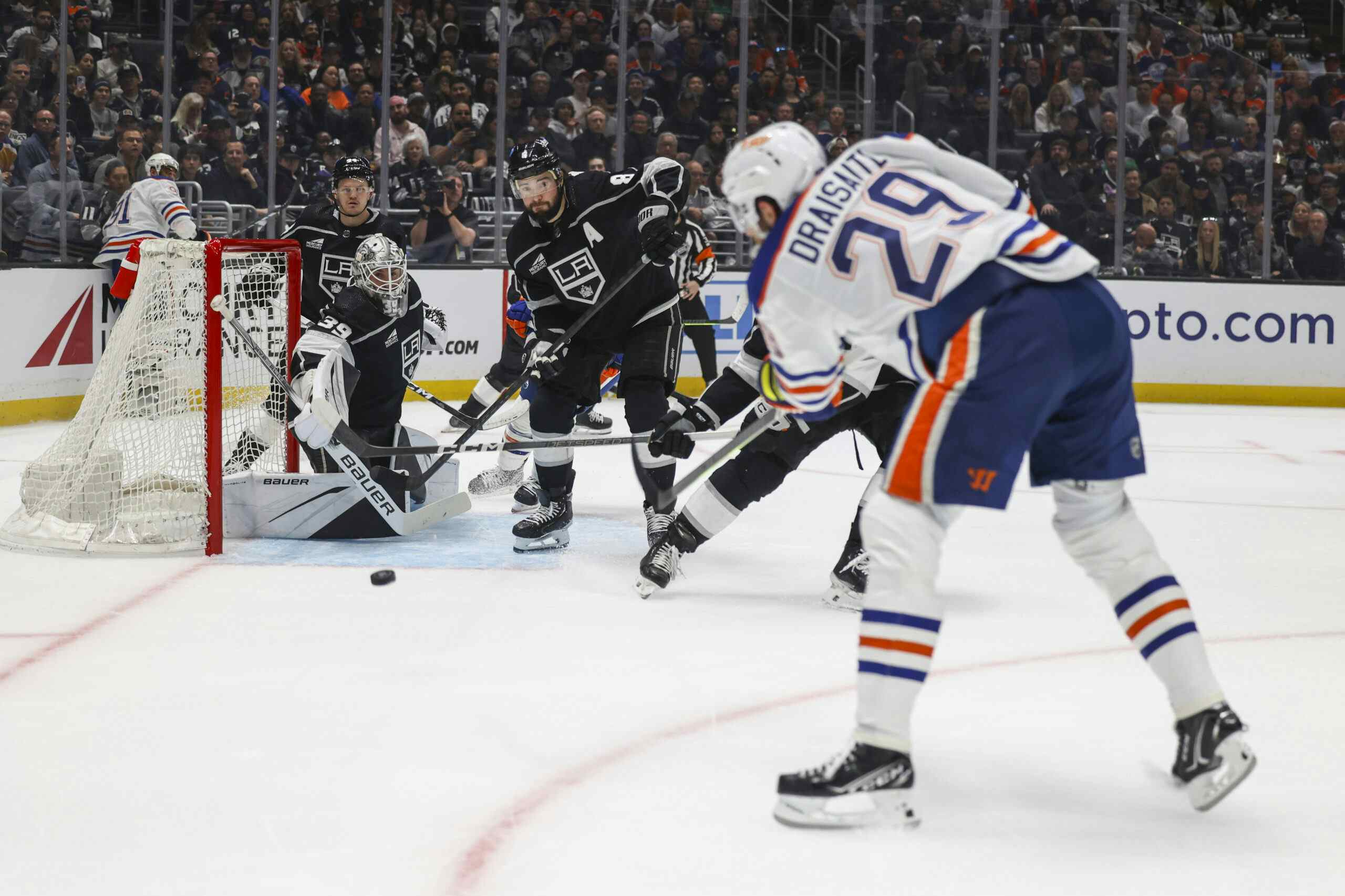Is the Edmonton market’s focus on prospects contributing to Oilers losses?

On Monday, the managing editor of SBNation’s Oilers website wrote a piece in which he explained that he would no longer be writing prospect profiles because doing so was perpetuating a “prospectophile” culture that excused the failings of the NHL team.
Is he right?
The argument goes something like this: the Edmonton Oilers have sacrificed the present because of their all-consuming focus on the future. The club loses, but gets away with it because it has shiny prospects to distract the fans. The media covering the team shift to talking about prospects rather than blast the organization. The organization points to the prospects, and gets distracted from the things that matter in the here-and-now.
Derek Zona put it this way:
All of this serves as a giant distraction to the issues at hand, except rather than “Pay no attention to the man behind the curtain!”, it’s “Pay no attention to the lack of player development, inability to acquire and keep NHL players, inability to successfully negotiate contracts, lack of defense, lack of centers and our mismanagement!” “Look over there at the shiny young players!” has become a way of life in Edmonton, so much so that there is a popular radio show and blog devoted solely on the next big thing.
I don’t see it as a theory that holds up to scrutiny.
The Silliness

Let’s start by acknowledging how ridiculous it is to draw a line between the kind of fan attention to a team that is right and proper and beneficial and the kind that is wrong and damaging. Hockey is a professional sport; grown men swatting at a rubber disc with sticks. Like all sports, it’s capable of capturing imagination and showing human characters and abilities that transcend its inherent silliness, but like all sports it’s still inherently silly.
So to say, ‘I’m so serious about my NHL team winning and losing that I won’t deign to indulge in the process of tracking which prospects make it and how they do it and where they are now and you shouldn’t either’ is to forget that it’s all goofy. There’s nothing inherently more virtuous in cheering for the success or failure of a team than in cheering for the success or failure of an individual.
Personally, I can’t separate the two. It’s enjoyable for me to track the career progression of some pint-sized forward with incredible skill or some big, plodding defenceman trying to eke enough out of his limited abilities to make the show. It’s enjoyable for me to watch teams good, bad and mediocre improve their lot or win it all. All those individual stories, from the lowliest prospect all the way up to the greatest superstar are intertwined.
Others may disagree; they may feel that keeping track of that goalie playing 20 games in the AHL is totally irrelevant but that following the wins and losses of an NHL club is paramount. That’s their right; one of the great things about sport is that people can appreciate it in different ways. But it’s an arbitrary distinction, and I struggle to understand why anyone would attempt to enforce their view on others.
The Substance

Is Zona right, though? Is the willingness of Oilers fans to busy themselves with prospects a key reason why the team keeps struggling? I don’t see it; I think he’s confused cause and effect.
There is a legitimate argument to be made that teams in real hockey markets don’t have the same incentives to win as teams in lesser ones. Those clubs can afford to be more patient with an underperforming coach or G.M. because their fans will tune out less readily and they can afford for more of them to become apathetic. For a team in a smaller market, any stretch of ineffectiveness could erode a fragile fanbase, so they have more incentive to act quickly to right the ship.
So far, so good. But here’s the thing: once one of those extremely popular teams starts struggling, its legion of fans don’t stop consuming hockey news. Prospects and the draft are the most relevant to a team with the assurance of a high pick, but if prospects didn’t exist fans would seek out something else – news on pending free agents, trade rumours, or even just more information on the team in the here-and-now (and as a guy who has written his share of pieces on the Oilers’ No. 5 defenceman in March of a ruined season, let me say that those pieces continue to bafflingly draw traffic). Do some people talk about the draft instead of moaning for the nth year in a row about the state of the team? Sure. Does it matter? I doubt it; teams respond to money well before they respond to moaning, and a guy not buying tickets because he’s watching Oklahoma City on the internet hurts more than a guy buying NHL tickets and booing loudly.
It’s also problematic to assert that people are willing to excuse n years of failure because someone like me writes about Ben Betker. Fans hope; if there aren’t prospects to hope in, people will hope that Ryan Nugent-Hopkins emerges or that Luke Gazdic steps up or that Andrew Ference rebounds. There’s always something to hope for if someone is willing to look hard enough for it.
The nature of media has changed, and everything – not just hockey, not just sports – is covered in greater depth and with greater frequency than it was even 10 years ago. It’s tempting to conflate that increased coverage with the state of the Oilers, to claim that somehow the former impacted the latter. But this is correlation, not causation; the Oilers happened to go into a tailspin at the same time as the nature of hockey coverage changed dramatically. There’s no reason to believe those dramatic changes caused the Oilers’ failings any more than they caused the success of the Bruins or improved my performance at Diplomacy.
The team and media isn’t creating a market by talking about prospects. The market exists and it demands information about everything and if the team and the established media don’t provide it people will look elsewhere for it.
RECENTLY BY JONATHAN WILLIS
- Tryout season
- Oilers rookie camp roster – invites and stories to watch
- Iiro Pakarinen – Right time, right place?
- Would the Oilers want a do-over of the Hall, RNH & Eberle deals?
- Sean Monahan is more cautionary tale than guiding light for Leon Draisaitl
- The Oilers don’t have much in the way of goalie prospects, but it may not matter
- Follow Jonathan Willis on Twitter
Recent articles from Jonathan Willis





